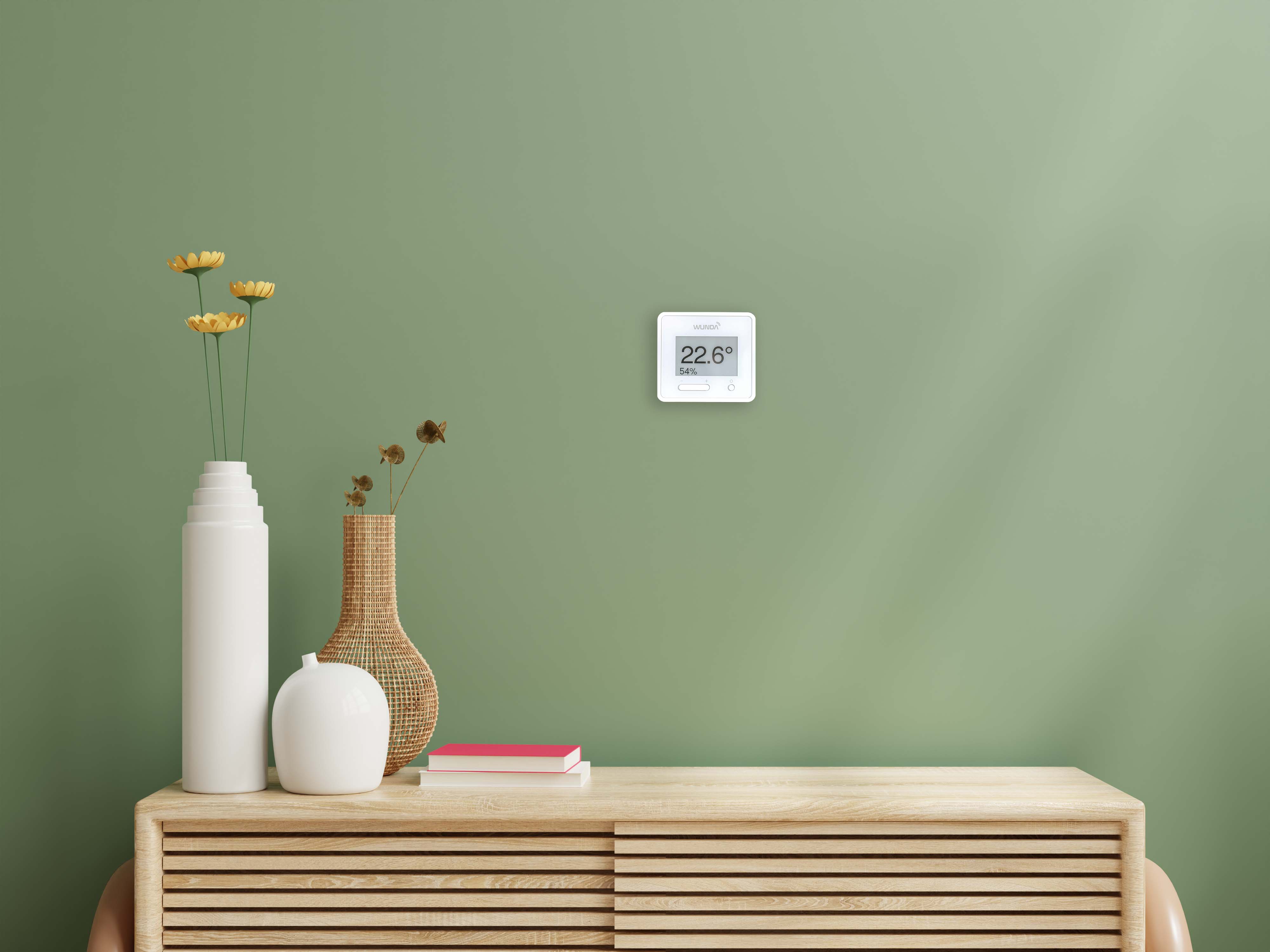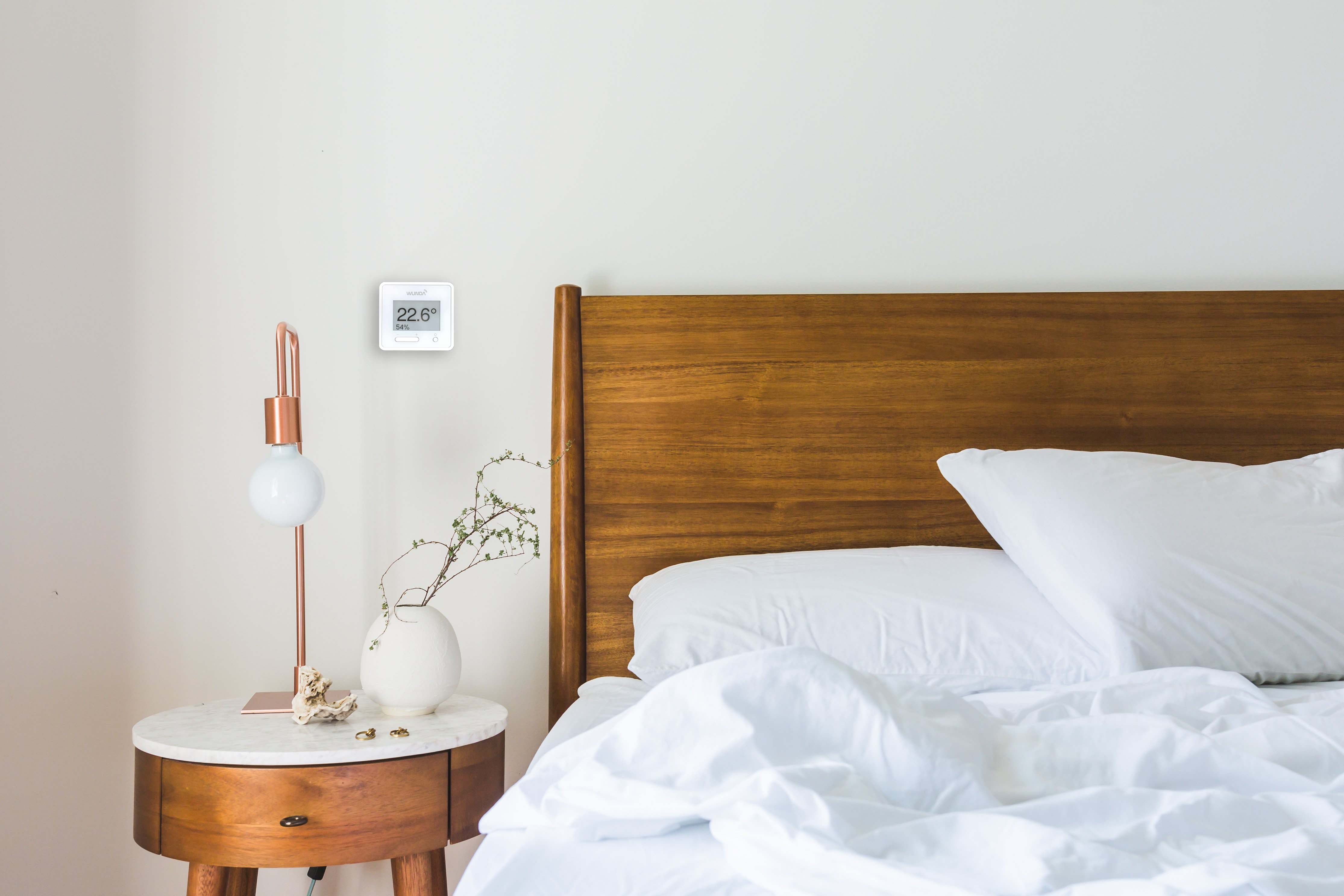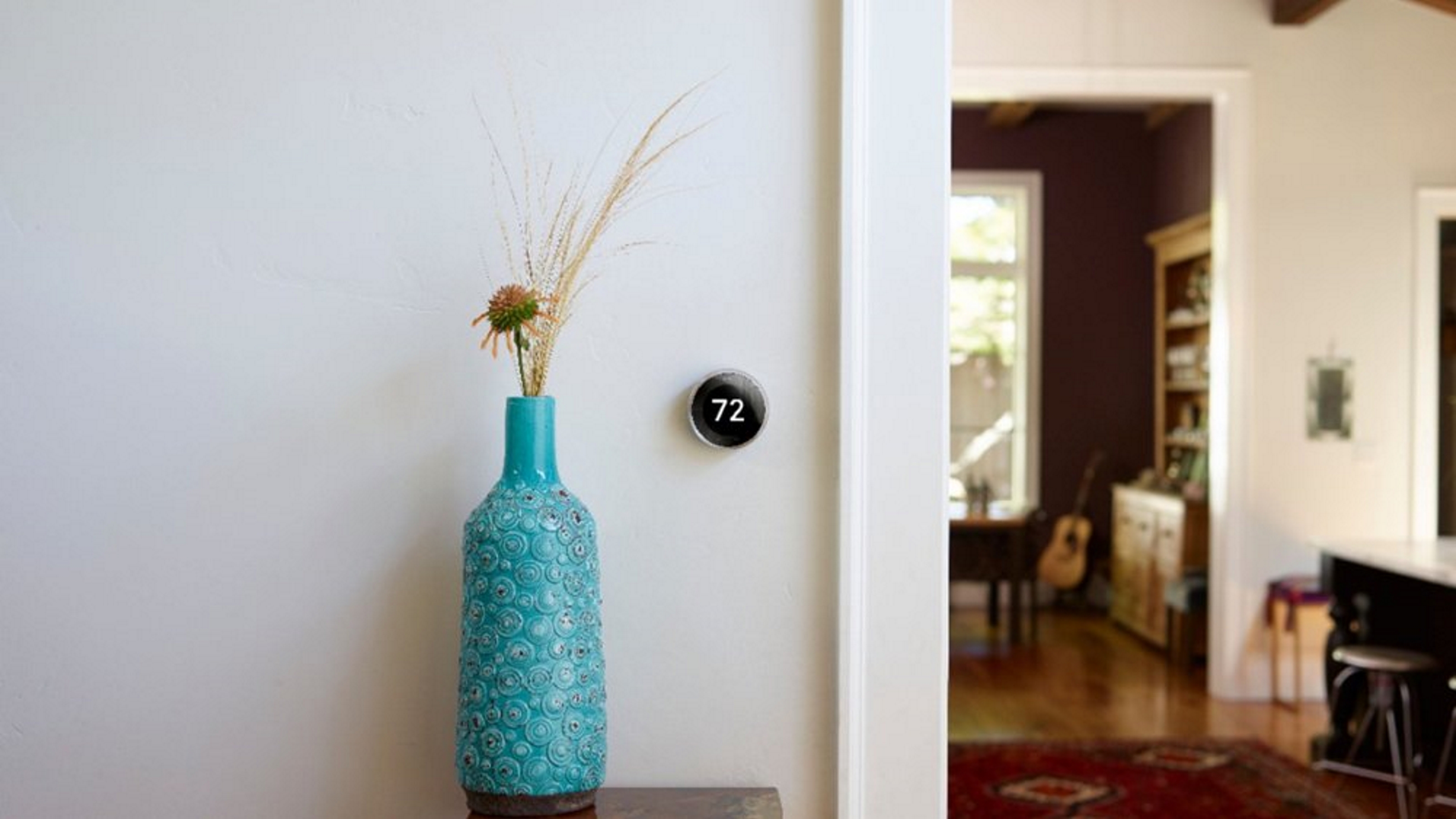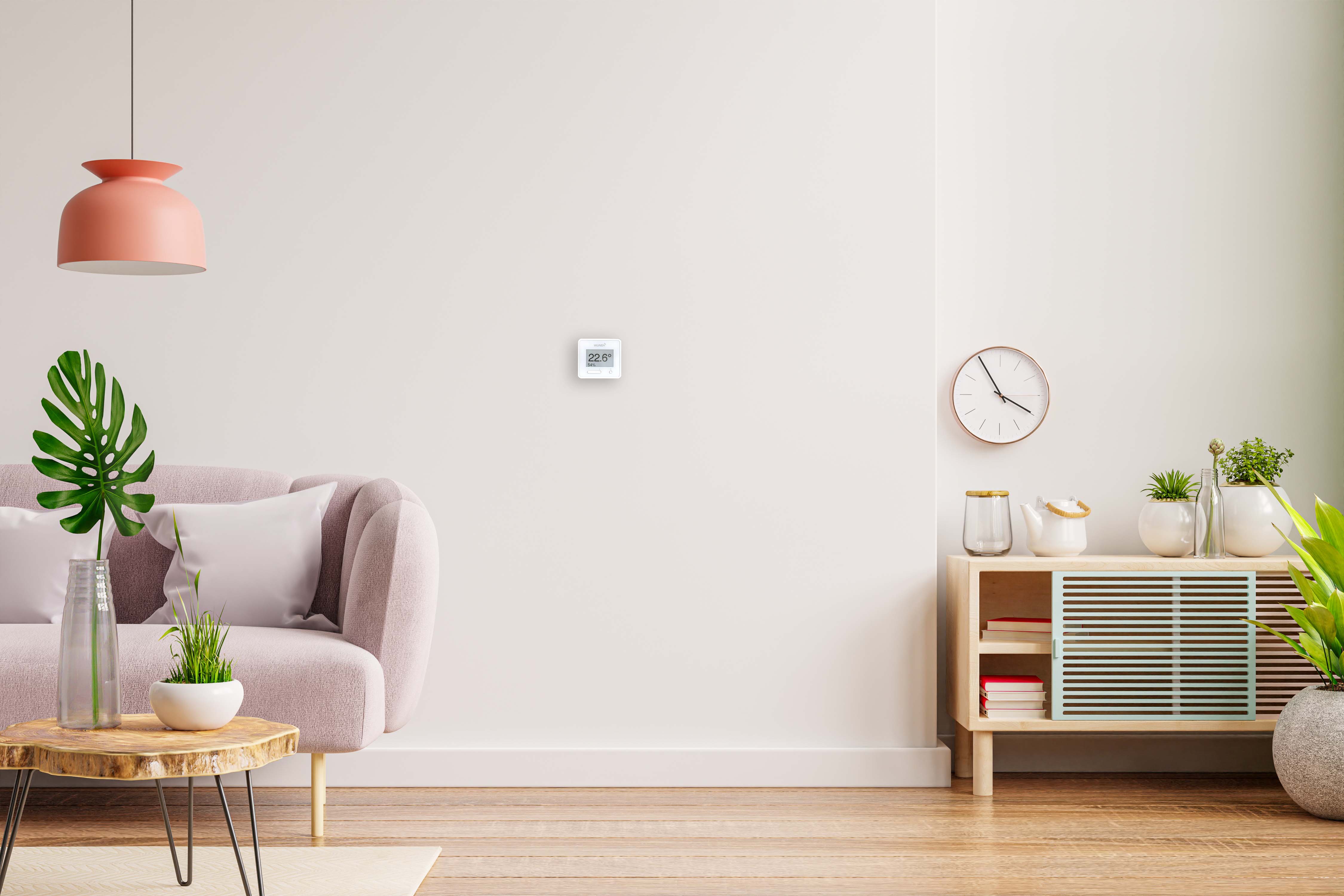Are smart thermostats worth it? How much money can they save?
Tempted to invest in one of the latest smart heating systems? We ask 'are smart thermostats worth it?' and see if they can reduce your energy bills

The Livingetc newsletters are your inside source for what’s shaping interiors now - and what’s next. Discover trend forecasts, smart style ideas, and curated shopping inspiration that brings design to life. Subscribe today and stay ahead of the curve.
You are now subscribed
Your newsletter sign-up was successful
Asking yourself 'are smart thermostats worth it' is a key part of modern life. A rising trend in technology, they could be seen as a way to reduce bills and live more efficiently - but will they actually save you money?
Unlike your standard thermostat, the best smart thermostats can give you greater control over your home’s temperature and therefore be a more eco-friendly and money-saving choice. In turn, this means you’ll have more money to spend on all those superfluous, yet oh so necessary, accessories that make a house a home.
‘When it comes to your fuel bills, smart thermostats can be useful in minimizing your energy use,’ says Jerry Whiteley, technical manager at Chartered Institute of Plumbing and Heating Engineering (CIPHE). ‘A good system can help you eliminate wasteful practices, such as leaving the heating turned on when no one is home. Best of all, some of the more advanced features including schedule learning, weather compensation and movement monitoring, allow the system to save energy and money in the background without you having to lift a finger. The financial savings you make will depend entirely on the amount of energy you save.’
Before you invest in one of the latest smart thermostats from the likes of Wunda, Hive, Google Nest, Tado and more, it pays to consider your set up to ensure a smart system is the best choice for your home and lifestyle.
Are smart thermostats worth it? The reasons why they could be....

1. Smart heating systems allow you to turn on your system remotely
The most enticing thing about a smart thermostat is that you can use it to control your home’s heating remotely from the convenience of your smartphone or tablet. This means you can set schedules and turn it on or off remotely – no matter if you’re home or away.
This comes in useful if you’ve been away for the weekend and want to turn on your heating before you arrive home. It’s also handy if you simply forgot to turn the heating off when you left home in a hurry.
‘Everyone wants their home to be warm and cosy when they come home, especially in the colder months,’ says Jess Steele, heating expert at BestHeating (www.bestheating.com). ‘Some standard central heating systems just can’t be relied upon to guarantee this so the central heating ends up being left on all day. Smart thermostats, however, allow you to set the temperature well in advance and your system will work out when it needs to turn on - just in time to get your house up to the required temperature for your return.’
The Livingetc newsletters are your inside source for what’s shaping interiors now - and what’s next. Discover trend forecasts, smart style ideas, and curated shopping inspiration that brings design to life. Subscribe today and stay ahead of the curve.
See our comparison on the Ecobee vs Nest smart thermostats.
2. You can easily tweak the heating schedule on your smart thermostat app
Using the smart thermostat’s app controls you can schedule your heat to come on when you want it – down to the exact hour – to make sure your home is always at the optimum temperature. You can easily set different schedules for different days too – so your weekday timings when you’re out at work are slightly different to your weekend ones when you’re having a nice and relaxing lie-in, for example.
3. Isolate rooms or zones to heat individually

You can choose from a whole-home or multi-room system. The whole-home smart thermostat option will allow you to turn your whole system on or off at the same time. Some smart heating systems however, such as WundaSmart, have the option to control different zones or multiple rooms individually. This may take longer to install as each room will need its own smart TRV, but the results can be highly beneficial.
4. Smart thermostats can do the thinking for you
The best smart thermostats are intuitive and can ‘learn’ your patterns and routines to provide optimum temperature conditions at home and ensure you only use what you need. Some types of heating systems have movement monitoring and run with an app that can tell which room you are in or if you are at home. This means they can automatically turn off the heating when you don’t need it to save on energy, for example.
‘The most intelligent smart heating controls have a function that takes into account the outdoor temperature,’ says Jess Steele. ‘If the temperature outside is colder than usual, your heating will come on a little bit earlier than normal in order to make up for it.’
And the reasons why smart thermostats might not be worth it...
1. You’ll need to be reasonably tech savvy to use a smart thermostat
If you’re not keen on using your smartphone to control your heating, then a smart thermostat may not be for you. While you can use the wall mounted controls to adjust the temperature and use basic controls, to get the best out of schedules and general day to day controls you’ll need to access the dedicated app on your smartphone or computer.
2. Installation can be tricky
'If you’re looking to replace an existing thermostat you may be able to install a new smart thermostat yourself,' says Jerry Whiteley, technical manager at CIPHE. 'In most cases however, you’ll need to call upon the help of a professional to install the system. Not everyone will have knowledge of their central heating and hot water system components, for example. Always check the product specification against any existing systems for compatibility. Don’t mix up one manufacturers control with another as this will lead to problems of compatibility and warranty. And if you are installing the controls yourself, then you are responsible for that correct installation. Read the T&Cs as this might affect the warranty.
Smart thermostats are usually wireless, which makes them quick to install. 'However, if your WiFi cuts out on the coldest day of the year, this may pose a problem,' Jerry says. 'So check what network or back up your smart thermostat company offers. If the internet cuts out you can still use your WundaSmart sysyem via your LAN (local area network), for example, thanks to all your settings being stored in a physical central hub.'
Will my home benefit from smart heating?
Smart thermostats are able to learn your patterns and routines to create a schedule so it only uses the energy it needs to keep your home warm. ‘The initial cost of a smart thermostat is considerably higher than that of a traditional one,’ says Andy Kerr, co-founder of BOXT.
‘The higher costs when buying the unit can be a deterrent when it comes to upgrading a home heating system. Installation is also slightly more complicated than that of a familiar traditional thermostat, which means you may require assistance from a contractor for the set up.'
The results can be worth it, however. The Google Nest thermostat can help you save on average up to 16.5% on your heating bills when paired with a new boiler, for example.

One of the UK's most respected tech and smart homes writers, Emily Peck also covers everything from interiors style to decorating trends. She is a contributor to Wired UK, and has also had a column in House Beautiful. She has written for publications such as Grand Designs, Stylist, Shortlist, Woman&Home, BBC, Ideal Home and House & Garden. She was once the Features Editor of Ideal Home.